There have been a few one woman, one location survival films. From a woman handcuffed to a bed in Gerald’s Game (2017) to a woman getting trapped in a walk-in freezer in Mili (2022), this niche genre is growing. It seems there are endless variations and places for female entrapment in movies, and the latest is Nowhere (2023), a Spanish movie in which a pregnant woman must survive being lost at sea inside a shipping container.
Schoolteacher Mia and her husband Nico are fleeing a totalitarian government that arrests and exterminates pregnant women and children. They must evade helicopters, searchlights, and ruthless police to reach safety. They plan to escape as refugees concealed inside a shipping container on a ship bound for Ireland.
While this is a situation that is sadly too common on the news about refugees, it is the optics and politics of this movie that are particularly interesting. Mia is a white, middle-class, European woman seeking to flee her country for a better life elsewhere. Perhaps director Albert Pintó felt that having someone who looks like Mia might make the plight of refugees more sympathetic and relatable to a Western audience. For what it’s worth, Nowhere feels like a marriage between The Handmaid’s Tale and Children of Men by way of Castaway.
Chekov Would Be Proud
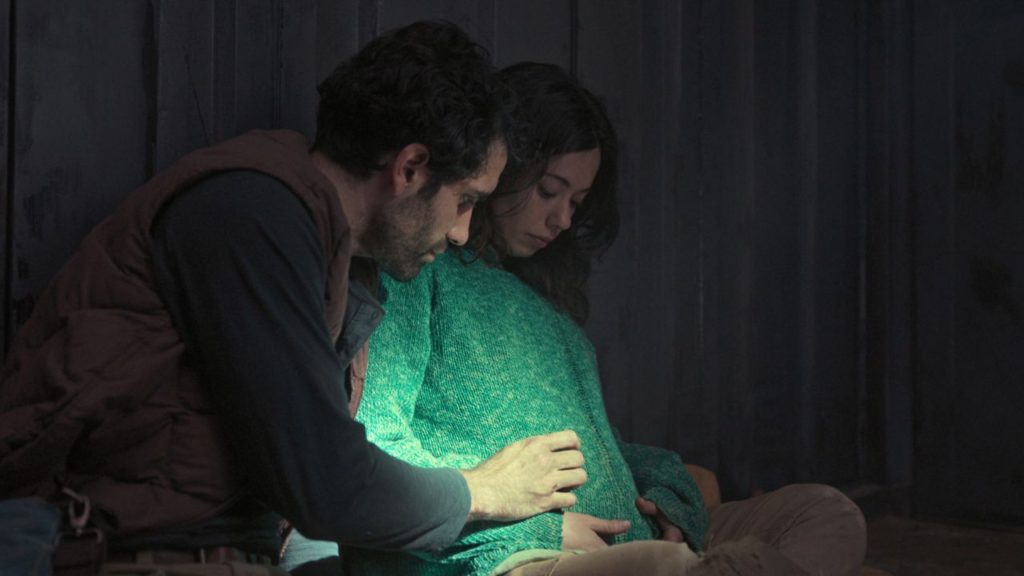
Eventually, Mia and Nico get separated and Mia must fend for herself on a container full of pregnant women. I won’t give anything away, but things escalate brutally and Mia ends up having the whole container to herself. Soon, the container is knocked off the ship during a storm, and Mia finds herself adrift at sea, stuck inside a flooded container that has become both her home and a deathtrap.
Life inside a shipping container presents plenty of interesting opportunities. Like a child on Christmas day, Mia unboxes the crates inside the container and explores their contents. Nowhere becomes an unlikely lesson in Chekov’s gun, the old idea that every element that is shown in a story must be necessary and have a use later. Mia finds bottles of liquor, earphones, hoodies, and a million Tupperware containers. It was interesting to watch how Mia figures out creative uses for each item.
She becomes a Spanish MacGyver, using everything at hand to transform the container, first into a liveable space, then into a cosy home when it becomes clear she’ll be there awhile. She uses the liquor as sterilizer, as fuel for fire, and as a painkiller. The earphone wires become string for weaving nets to catch fish. But the hero of the show is definitely the Tupperware. Mia uses them as flotation devices, to store live fish, and even as makeshift miniature toilets.
Woman Versus Nature
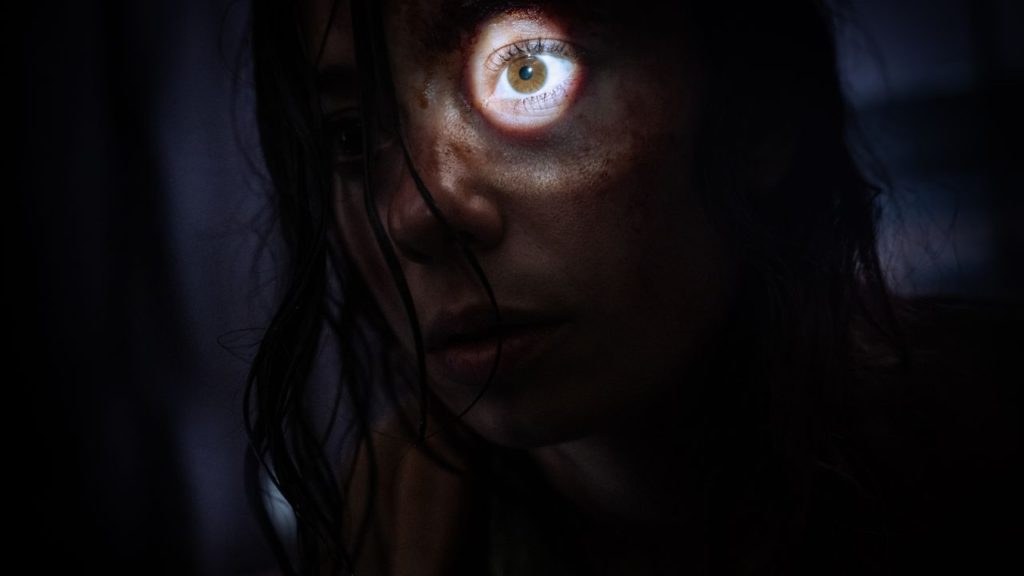
The film’s most intense moment was when Mia goes into labour during a thunderstorm. Maternal instinct takes over and she strips naked to give birth in the surging water. I was not prepared to see the baby actually slide out from Mia, umbilical cord and all. The scene was raw and elemental, and Anna Castillo’s performance of a woman pitted against the forces of nature deserves praise.
Things then change once her daughter is born. Now that she has another life depending on her, Mia is galvanised to push through her pain and despair to survive for them both. (Side note: Baby Noa is apparently a magic baby. She rarely cries, never fusses, and is barely sick despite living inside a semi-flooded container. The power of plot armour.)
After abandoning their container home, mother and baby drift at sea, with Noa in a cradle made of Tupperware while Mia floats beside her in the water. After weathering all kinds of dangers together, it is this quiet, intimate, whispered conversation between a dying mother and her baby that brings the emotional payoff.
Hold Up… Here Be Spoilers
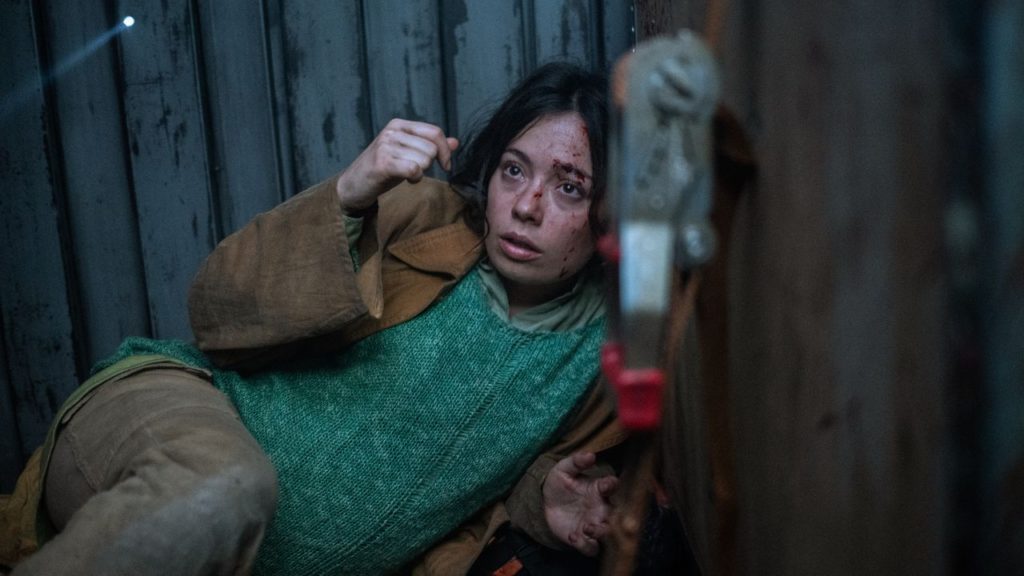
Now I’m going to venture here into spoiler territory to discuss how I would have liked to see the movie end. I would’ve far preferred it if Mia had slipped away beneath the waves, never to be seen again, leaving baby Noa as a living testament of her mother’s dedication and dreams for the rescuers to find. This would’ve given Mia’s sacrifice much more emotional impact.
Instead, everything works out nicely in the end for everyone. The ending is as sweet as the Snicker’s bar Mia promised Nico she would eat when she arrived in Ireland.
Still, I get the lesson: never give up hope because you never know what good things lie ahead. Also, never throw away Tupperware. That’s stuff is magic.




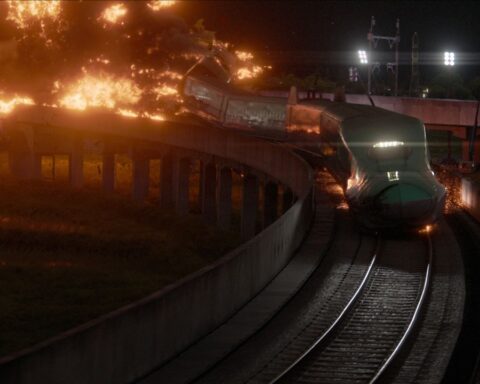

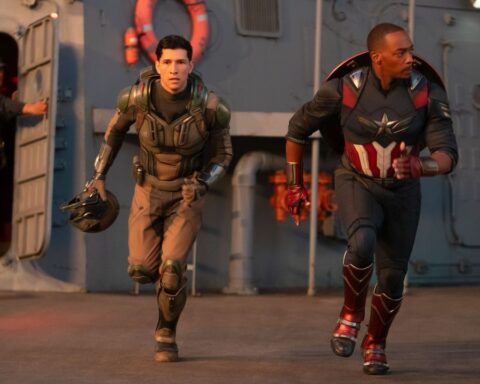


Follow Us